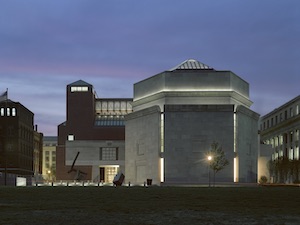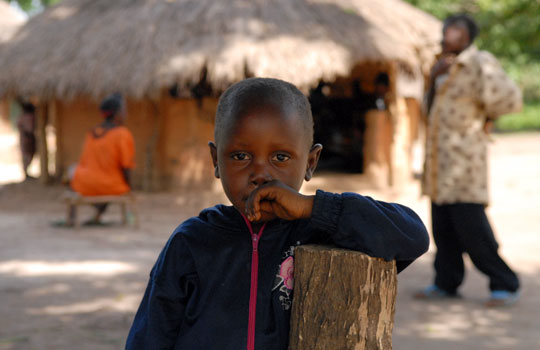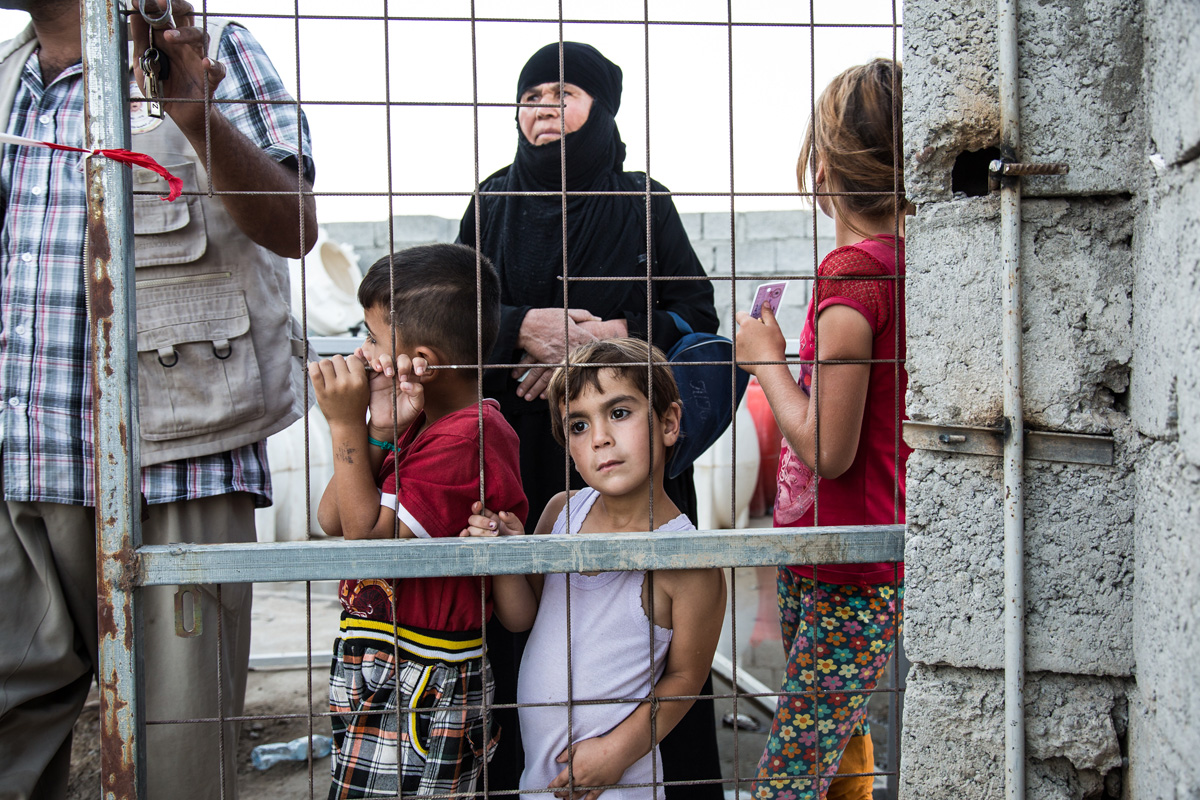Blog Home > rwanda
-

Days of Remembrance: Progress report with Roméo Dallaire
April 29, 2010
In commemoration of the 65th anniversary of the liberation of Nazi concentration camps, the U.S. Holocaust Memorial Museum designated Stories of Freedom: What You Do Matters as the theme for Days of Remembrance 2010. Among the events the Museum held was an interview by Michael Abramowitz, Director of the Committee on Conscience at the Museum, with General Roméo Dallaire, former commander of the UN peacekeeping force in Rwanda during the genocide in 1994. General Dallaire spoke about his experiences in Rwanda 16 years ago and the importance of increasing the will and capacity in government to respond to genocide today.
-

Marking the 16th Anniversary of the Genocide in Rwanda
April 5, 2010
Joseline was 17 when genocide came to her village in Butamwe in central Rwanda in April 1994. As Hutu men and boys -- men and boys that Joseline had grown up with -- began killing and raping their Tutsi friends and neighbors, Joseline ran into the tall grass around her village. For three days, she hid there until the fields were set ablaze.
-

Grenade Attacks in Kigali, as Rwanda Looks to Elections
March 10, 2010
Earlier this month, two grenade attacks occurred nearly simultaneously in Kigali, wounding at least 16 people. Last month, a similar attack involving a trio of explosions killed one person and injured 30. Rwandan authorities blamed the earlier attack on former army chief Lt. Gen. Faustin Kayumba Nyamwasa, who resigned as Rwanda's ambassador to India in late February and fled to South Africa in exile. Naymwasa denies the allegations and accuses the government of branding him as a member of the opposition.
-

Preventing Genocide: A Conversation with Ambassador Susan Rice
January 22, 2010
On December 10, the Museum hosted a special program with U.S. Permanent Representative to the UN Susan Rice. Michael Abramowitz, Director of the Museum’s Committee on Conscience, interviewed Ambassador Rice, discussing her work at the UN and her experiences working on issues of genocide and mass atrocities.
-

Untangling the Complexities: Background to the Congo
January 6, 2010
The Democratic Republic of the Congo has suffered two wars since 1996. At its height, the second war involved the armies from seven African nations and multiple rebel groups. According to the International Rescue Committee, an estimated 5.4 million people died between 1998 and 2008, most from preventable diseases as a result of the collapse of infrastructure, lack of food security, displacement, and destroyed health-care systems. The formal conclusion of the war in 2003 did not bring an end to conflict in the region.
-

Preventing Genocide: A Conversation with Susan Rice
December 11, 2009
Last night in a special program at the Museum, Ambassador Susan Rice, the U.S. Permanent Representative to the United Nations, made clear that the U.S. government has adopted benchmarks by which it will measure whether Sudan is making progress in meeting humanitarian and other obligations -- and they will be assessed quarterly. There has been some ambiguity about whether such benchmarks existed. The benchmarks are very specific and have been agreed on by "the highest officials, including the President of the United States, and by us at the principals level," Rice said. The status quo in Sudan, Rice insisted, was inherently unacceptable. Asked whether there had been consequences for the perpetrators in Darfur, Rice replied, "Not enough."
-

Online Galleries Focusing on Regions at Risk Demonstrate the Power of Photography
November 9, 2009
With the power to capture the complexities of life in a single image, photography plays two unique, distinct, and tremendously important roles in genocide prevention and response. Photographs provide visual evidence so the world can know and remember; they also allow us to understand. By looking at a photograph, we bear witness to the emotions, relationships, and implications of that single moment. In the words of photographer, Ron Haviv, this "time to contemplate, time to absorb, time to put yourself into that situation" has the potential to influence a human being to not only reflect, but also act.
-

Do Actions Speak Louder Than Words? When It Comes To Punishing Genocide, Both Matter.
October 23, 2009
On this day nine years ago, the Rwanda "Media Trial" opened at the International Criminal Tribunal for Rwanda (ICTR). Three Rwandan journalists stood before the judges, accused of using the media to spread hate speech and directly incite violence during the 1994 genocide. The trial raised important questions about the nature of speech and genocide: Did media directly influence the killing? What speech is protected under the freedom of the press? How can the intent behind words be determined? In a landmark decision, ICTR judges ultimately convicted all three men of direct and public incitement to genocide, one of several punishable acts outlined in the Genocide Convention. Handing down the verdict, the ICTR judges declared to the men, "Without a firearm, machete, or any physical weapon, you caused the deaths of thousands of innocent civilians."
-

Top Rwanda Genocide Suspect Arrested
October 6, 2009
One of the most wanted suspects in the 1994 genocide was arrested in Uganda this week and extradited to Tanzania to face trial at the International Criminal Tribunal for Rwanda (ICTR). The head of intelligence and military operations at Rwanda's elite military training school during the genocide, Idelphonse Nizeyimana was indicted by the ICTR in 2000 and charged with crimes against humanity, as well as complicity in genocide and direct and public incitement to commit genocide. The indictment charged that:
-

Stephen Rapp Nominated as Ambassador at Large for War Crimes
July 9, 2009
This week, President Obama nominated Stephen Rapp to become ambassador at large for war crimes issues. As a prosecutor at the International Criminal Tribunal for Rwanda (ICTR), Rapp led a landmark case against three Rwandan journalists charged with and found guilty of genocide, direct and public incitement to genocide, and other crimes. In 2006, Rapp left the ICTR to become the prosecutor of the Special Court for Sierra Leone. His nomination as ambassador awaits confirmation by the Senate.


